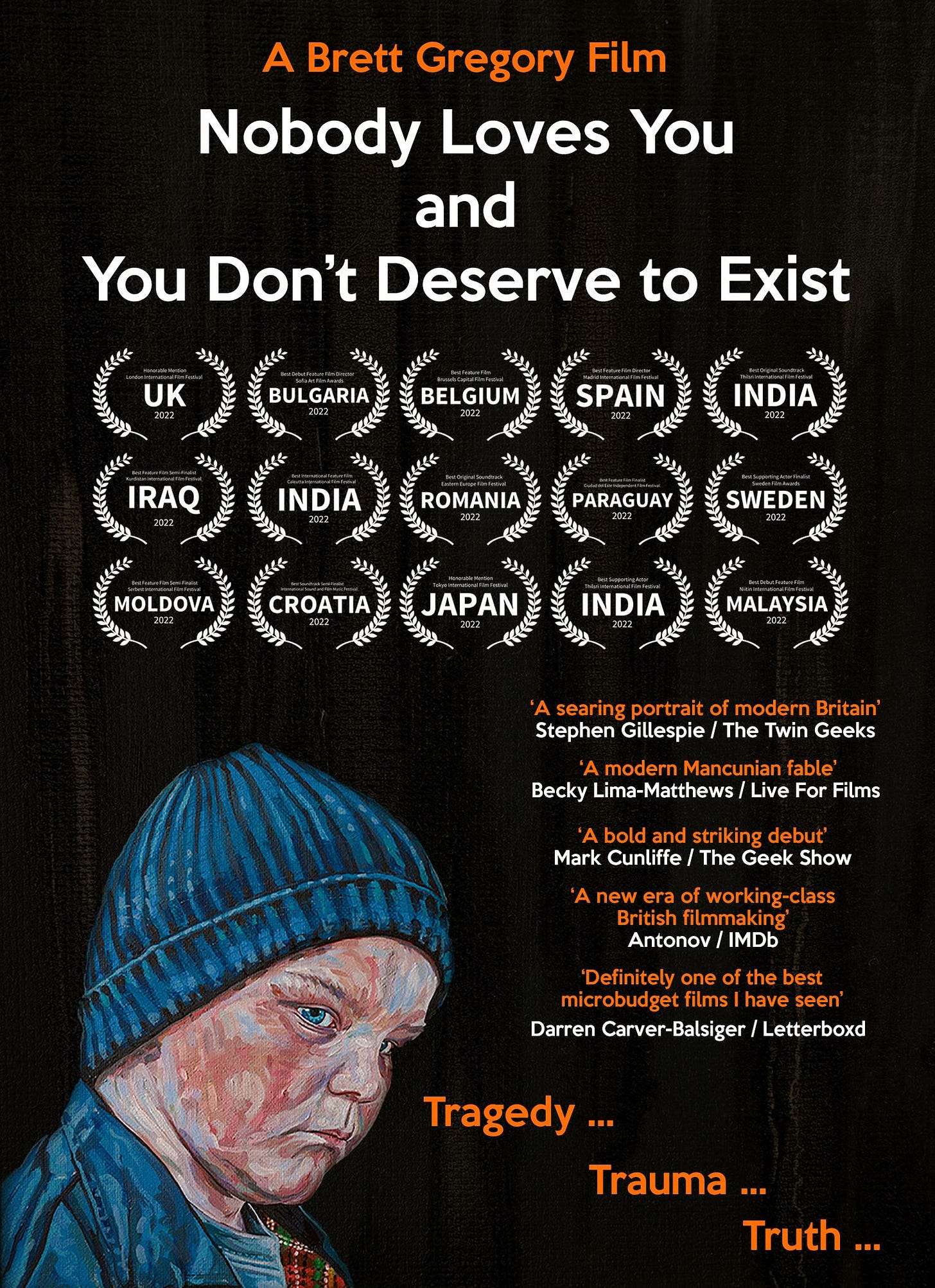Episode 18: Juice Aleem - The Archivist
Festival curator, cultural archivist, writer and UK hip-hop icon Juice Aleem discusses the history, meaning and significance of Afrofuturism

Episode 18 is a conversation with the legendary UK hip-hop artist and cultural archivist Juice Aleem, curator and creator of B-Side Festival and Afroflux, and the author of 2016’s ‘Afrofutures and Astroblack Travel’.
One of Ninja Tune offshoot Big Dada’s early signings, and a core member of seminal UK rap crews Gamma and New Flesh For Old, Juice Aleem’s knowledge of Afrofuturist art, history and concepts is rooted in his visionary lyricism, which combines futuristic narratives with gritty realism and historical analysis. He reccently contributed to Roy Christopher’s excellent ‘Boogie Down Predictions: Hip-Hop, Time and Afrofuturism’. Below you’ll find links to some of the texts, music and artists we discussed inEpisode 18, and some news about his upcoming events.
Recommendations from Juice Aleem

Juice Aleem had some excellent recommendations for further exploration of the concepts and ideas around hip-hop, Afrofuturism and culture. On the early origins of hip-hop, he mentions lots of seminal figures. You can read about them in Jeff Chang’s ‘Can’t Stop Won’t Stop’, and Brian Colman’s ‘Check the Technique’. One of the pioneers Juice Aleem talks about is LL Cool J, whose Rock The Bells movement has become a principal archive of hip-hop history. The Rock The Bells site recommends both Chang’s and Colman’s books, and a few more.
Some of the figures mentioned may be relatively obscure to those from outside hip-hop culture, like Imhotep Gary Byrd, a radio DJ whose shows reached a young Juice by way of his brother, who was in New York in the 1980s. Juice shouts out X-Clan and others as voices of their generation, and the artists he first connected with as a young listener.
This 2019 piece from Icon on the origins of hip-hop does a good job of summarising some of the evolution of hip-hop culture that took place in (mostly!) New York City during the 1980s, and mentions a few of the pioneers Juice namechecks, including Kool Herc and Disco King Mario. Juice also mentions one of my favourite albums of all time, the 1986 masterpiece (and debut appearance of Kool Keith), Ultramagnetic MCs’ classic ‘Critical Beatdown’.
One of the figures we discussed, who helped to define and influence the growth of both hip-hop and Afrofuturism, was Rammellzee. Considered a vital contemporary of visual artists Jean-Michel Basquiat and Keith Haring, he was the originator of what he called ‘Gothic Futurism’. He appeared in the classic hip-hop movie Wild Style (1982), recorded music, exhibited his art, and collaborated with the likes of William Burroughs and Jim Jarmusch. He is credited as being one of the originators of graffiti art and culture, and was a prolific writer. This New Yorker piece does a good job of putting his life’s work in context. Juice recommends a deep dive into his ‘Ionic Treatise’, which seeks to define his philosophy and aesthetic.
Mentioned in the same breath as Rammellzee are some of the earlier artists later seen as having contributed towards the birth of Afrofuturism, like freewheeling saxophonist Pharaoh Sanders, John Coltrane ( particularly in his ‘Cosmic Music’ phase, an album he recorded with his wife Alice), and in some detail, Sun Ra, whose artistic achievements are almost as hard to measure as his vast back catalogue, and as hard to define as the fusion of spiritual and cosmic influences which drove his work. This New Yorker piece is a nice overview of his life and career.
We discussed Juice Aleem’s early and influential friendship with Keith Hopewell aka Part 2, co-founder of New Flesh for Old. It was via Juice’s crew Gamma and his friendship with Hopewell that he became involved with UK hip-hop, and later Big Dada. Read this profile on Part 2 at Low-Life for his early history and background as a hip-hop artist. He’s now a visual artist too, and has exhibited his work across the UK and Europe.
I interviewed New Flesh briefly for The Skinny, all the way back in 2006 - read the piece here. I also did a deep dive interview with some of the key people from Big Dada in 2007 for the label’s 10th anniversary - read that here (excuse the broken code).
Back to the episode… Juice and I talked about the rising visibility and popularity of Afrofuturist ideas and aesthetics. He began by mentioning some of his favourite artists and writers in the genre. He praised Octavia E. Butler, whose work is now beginning to find major mainstream success - an adaptation of her 1979 novel ‘Kindred’ aired last year. Alison Stine has a good piece at Salon on why it took so long to adapt Butler’s work.
He also mentions N.K. Jemisin and Nnedi Okarafor, both of whom are in the process of seeing their work given the big-budget, ‘Kindred’-style TV makeover. We geeked out over Christopher Priest, whose seminal 90s run on Marvel’s Black Panther was a game-changer for the character, influencing the movies and comics to come, (including the award-winning recent run by Ta-Nehisi Coates). We also talked about the commodification of Afrofuturist ideas and imagery in the Marvel Cinematic Universe and elsewhere.
Mark Dery’s seminal 1994 essay ‘Black to the Future’ was in many ways the key to Juice Aleem’s interest in, and involvement with Afrofuturism in a wider sense. He cites the essay as helping him come to terms with how his own work interlinked, overlapped and intersected with the movement’s aesthetics and ideas.
He mentions a few figures that Dery’s essay introduced him to, including Dr Tricia Rose, author of the seminal 1994 book ‘Black Noise: Rap Music and Culture in Contemporary America’, and Kodwo Eshun, whose stunning 1998 manifesto for sonic (Afro)futurism ‘More Brilliant than the Sun’ is absolutely essential reading. Eshun is now part of the fascinating art collective The Otolith Group.
We talked a bit about violence in drill music. The best writing I’ve read on this is Ciaran Thapar’s piece for The Guardian (his Substack ALL CITY is also excellent). Juice makes the very valid point that while there is now an obsessive focus on violence in black communities, street violence and gang activity have long been a part of UK culture. The example he gives are the ‘teddy boys’ - have a read of this blog from the British Newspaper Archive if you aren’t familiar with their history.
This article on the website Black History gives the story Juice referenced about how the Jack Daniels recipe was culturally (mis)appropriated from a slave known as ‘Uncle Nearest’. The New York Times covered this in 2016. It’s an all-too familiar tale, as Juice explains - and shows how the mealy-mouthed phrase ‘cultural appropriation’ is just jargon for outright theft of intellectual property in many cases.
It was a pleasure speaking to Juice Aleem, who has long been an inspiration to me as writer, performer and thinker. Watch out for new writing and music for him at his Bandcamp site and elsewhere.
FluxCon, the mini-convention run by Afroflux, is back on 10 June at Birmingham Hippodrome. This year, it will feature a coming together of artists and fans from across the boundaries of hip-hop, performance, comics, visual art and more. Check out some highlights from 2022.
FluxCon takes place within the wider B-Side Festival, which is celebrating 50 years of hip-hop culture this year with events covering everything from breakdancing to live cyphers and spoken word, and a screening of ‘Fight the Power: How Hip-Hop Changed the World’. It runs from 8 to 14 June. Check out some of the footage from last year’s B-Side.
That’s it for Episode 18! If you’re wondering where the usual ‘other stuff we’ve been reading’ links are, these posts were getting a bit long in the tooth, so I’ve cut them from the ‘episode follow-ups’. I’ll be writing a regular feature with general ‘things to read’, not connected to specific episodes, in coming months - so stay tuned.
Up next: Writer / director Brett Gregory
Our next guest is Brett Gregory, writer and director of the award-winning British independent film ‘Nobody Loves You and You Don’t Deserve to Exist’.
Ably accompanied by producer Jack Clarke, Brett and I discuss his bleak, brutal, starkly beautiful film, which has won more than 50 awards on the festival circuit, including at the Workers Unite Film Festival in New York, and The Capri Hollywood International Film Festival in Italy. You can currently watch the film on Amazon.
It couldn’t be more relevant to current discussions in the UK about austerity, poverty and the cost of living, and the wreckage that these policies have brought to the lives and mental health of so many.
See you in a bit, folks. Until then, take care of each other.
Subscribe to the podcast at sptfy.com/strangeexiles
Follow @strangeexiles for updates





